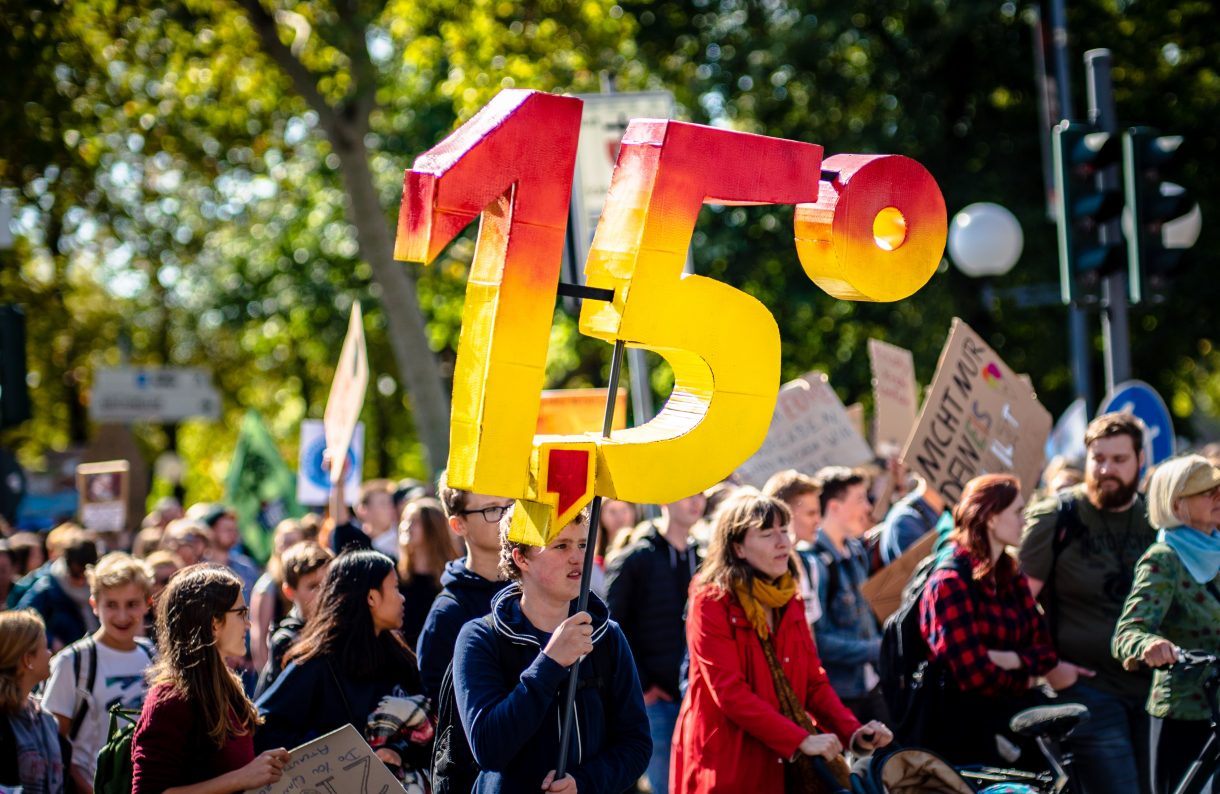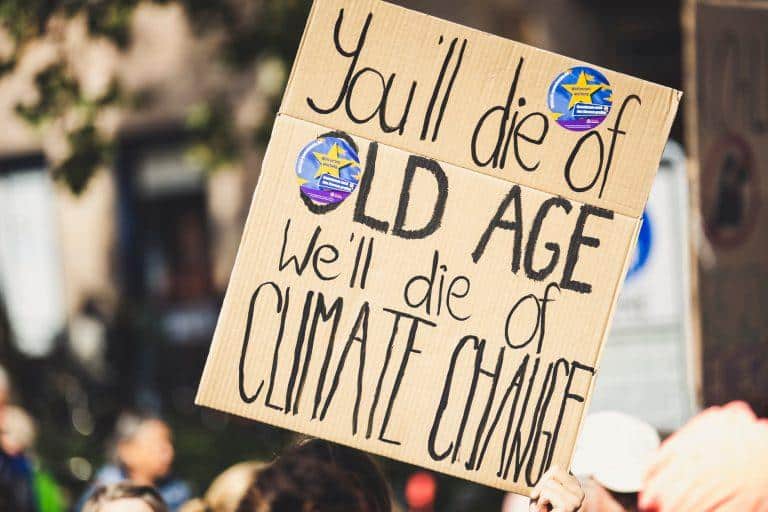
The IPCC Report 2023: What does this mean for the future of international travel?
The Intergovernmental Panel on Climate Change (IPCC) recently released a report that warns that we are on track to overshoot the 1.5-degree Celsius temperature rise by 2030, a target set by the Paris Agreement. This news is alarming for the planet, biodiversity, and humans alike.
Here we unpick what that means, what you need to know, and what the IPCC report means for the future of international travel. It’ll be a little more serious than my usual travel content, but if we don’t take action, there won’t be any planet left to explore!
So, what’s happening?
Already, human-induced global warming of 1.1°C has spurred changes to the Earth’s climate that are unprecedented in recent human history.
Changes are happening in every region of the world. Sea levels are rising, sea ice is disappearing, and the weather is getting more extreme.
To limit the effects of climate change, the international community agreed to do everything in their power to keep the average temperature rise below 1.5°C.
The 1.5°C target is important, as it represents a threshold beyond which the impacts of climate change are predicted to have a significant and potentially irreversible change on the Earth.
This might look like more frequent and intense heatwaves, droughts, floods, storms, and wildfires, leading to significant economic and social impacts. Sea levels will continue to rise, putting coastal cities and low-lying areas at risk of flooding and erosion. Biodiversity loss will accelerate, with many species facing extinction. And there’ll be significant impacts on human health, including an increased risk of heat stress, infectious diseases, and malnutrition.
Pretty bad, right?
Well, the 2023 IPCC Report has predicted that we are on track to overshoot the 1.5°C threshold by 2030.

What does this mean for me?
Of course, we want to know how this will affect us.
There’s tons of information online, but in brief, the IPCC report warns that continuing to emit greenhouse gases at the current rate will lead to catastrophic consequences.
Reaching 1.5°C of warming will in more frequent and intense heatwaves, droughts, and storms that will damage infrastructure and put vulnerable populations at risk. This is already happening, you can see it in the news. Readers in the UK may remember our recent 40°C summer. Readers from the USA might recall the ‘Big Freeze’. And on top of that, we have flooding in Pakistan, wildfires across Europe, and extreme drought worldwide. All of this happened in 2022.
The melting of polar ice caps and glaciers will cause rising sea levels, displacing millions of people and causing significant economic damage.
Biodiversity loss will be significant, with up to 90% of coral reefs and over 50% of insect and plant species at risk. We don’t realise how much we rely on other species for food, clothing, medicine etc until they’re gone.
Climate change will also lead to increased heat-related illnesses and deaths. By 2050, the conditions in parts of the U.K. will be suitable for malaria-transmitting mosquitos. Similar situations will surely happen in other parts of the world.
Additionally, drought and freshwater scarcity will lead to conflicts over resources and affecting agriculture and food security.
What does the IPCC report mean for the future of international travel?
Well, since we’re living in a capitalist economy, probably not much will change on the surface. Huge companies are all in for the fight against climate change… until it threatens their own profits and growth. We won’t see the cruise, aviation, or fossil fuel industries changing their habits any time soon.
But we need change.
As the world faces the impacts of the climate crisis, it’s essential to consider the carbon footprint of our travel and to take steps to reduce it. And since the large corporations don’t care enough about the planet to find better solutions, it’s down to us, as individuals, to make better choices for our planet and those we share it with.
This may include choosing more sustainable modes of transportation, such as trains or buses, opting for eco-friendly accommodations, supporting local communities and economies, and minimising waste and energy consumption while travelling.
We also need to spread the word! Join a protest. Sign as many government petitions as you can. Start a website, blog, instagram, or tiktok account to educate friends, family, and strangers (that’s what I did!). Join a community action group. As individuals, we can’t make huge change. But if everyone makes lots of little changes, they add up. And together, we can drive change.

Give me an action plan!
Climate change isn’t a new problem, and we’ve covered most of the things you’d need to know in separate posts. If you want to learn more about how to travel with the planet in mind, head to our sustainability hub, or click any of the below links to learn more.
What is Sustainable Travel?: The OG. Covers what sustainable travel actually is, why it’s important, and 23 ways that YOU can start travelling with the planet and people in mind immediately.
The Beginner’s Guide to Carbon Offsetting: Covers the problem with flights, how offsetting works, and how YOU can start offsetting your personal emissions.
Is Carbon Offsetting Enough?: Understand why carbon offsetting isn’t a perfect solution and how we can make sure we’re doing it right.
What’s the true cost of your cruise holiday?: Discover how cruise ships pollute our cities and seas and fun alternatives to cruise travel.
Overtourism: what’s the solution?: Understand the damaging impacts of too many tourists, and how YOU can avoid becoming a part of the problem.
How to be a slow traveller: We can’t keep making excuses for hopping on a budget flight for a whistle-stop weekend in *insert European city here*. Find out what slow travel is and how YOU can embrace this mindful way of seeing the world.
And if you’re still reading this post, here are 6 quick tips to take away with you before you go:
1.
Choose a more sustainable transportation option. Consider taking trains or buses instead of flights whenever possible. If you do need to fly, consider purchasing carbon offsets to mitigate your emissions. They won’t make up for the emissions you’ve created (in fact, offsetting can often be a scam) but it’s a step in the right direction.
2.
Stay in eco-friendly accommodations: Look for accommodations that have eco-friendly practices such as recycling, energy efficiency, and water conservation. Support local economies businesses where possible.
3.
Travel closer to home! UK travellers can get inspiration here.
4.
Reduce waste and energy consumption: Conserve water by taking shorter showers and reusing towels. Turn off lights and unplug chargers when not in use, and reduce your plastic waste by bringing a refillable water bottle and reusable shopping bag.
5.
Choose activities that have a low environmental impact: Explore the outdoors through activities like hiking, biking, and kayaking instead of more resource-intensive activities like driving or helicopter tours.
6.
Educate yourself and others: Learn about the environmental issues facing the places you visit and share what you learn with others to help raise awareness and promote sustainable tourism practices.
Follow our daily adventures on Facebook and Instagram
Disclaimer: The information and advice provided in this blog are the author’s opinions and based on their personal experiences. All information was accurate at the time of writing. However, things can change quickly, so always double-check current conditions and guidelines before setting out. Remember, your travels and safety are your own responsibility, and this blog can not be held responsible for anything that might happen on your adventures! Always exercise caution and good judgment. Oh, and don’t forget to get travel insurance! Happy travels!
This post may contain affiliate links (yay for transparency!) This means that I will earn a small commission, at no additional cost to you, if you click the link and choose to buy the product. I only link to stuff I have personally bought and found useful and never endorse crap. Your support helps keep the site going, thank you!
Alice
Alice is a UK travel blogger who advocates sustainable travel and being more eco-conscious on a budget. She loves coffee, her houseplants and summiting mountains.
You May Also Like

A Local’s Guide to Lincoln
September 19, 2020
The Beginner’s Guide to Carbon Offsetting Flights
March 16, 2023